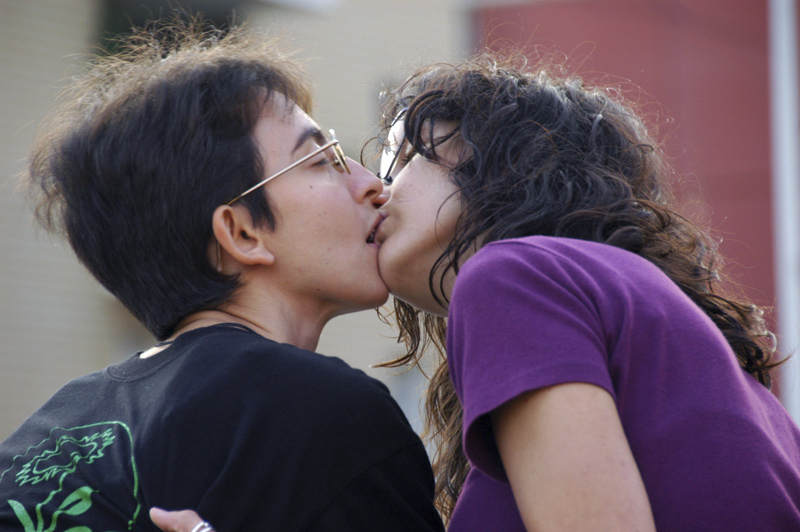
Upon entering the sphere of college life, many incoming students are greeted with programs and activities aimed at making newcomers feel welcomed. Universities throughout the nation adopt their own form of freshman orientation based on school spirit, academic support and long-term traditions. According to a recently published article in the New York Times, the prestigious Stanford University is host to one unique annual welcoming tradition: a drunken gathering for kissing freshman.
The tradition is believed to have started over 100 years ago with a more formal approach, packed with roses, champagne and a couple hundred students. Now, the event attracts thousands of lips and a seemingly infinite amount of bacteria. School officials consider the consequences of the festivity an “epidemic,” as students inevitably suffer from cold symptoms afterward. Although hazards emerge from the mass circulation of germs, it is not the role of the university to regulate an activity they find unsanitary. At most, Stanford University can continue to encourage students to practice “safe kissing” upon their own discretion.
Stanford University, or any school with a similar scenario, should not interfere with any mildly self-harming, yet voluntary activity. Looking at any sort of prohibition, we see that banning an activity does not decrease an individual’s desire to participate. In fact, research shows that this makes a person want to do it more. Common psychological theory proved true when Stanford administration tried to stop the event in 2009, during the infamous “swine flu” outbreak, but failed as students upheld the tradition anyway. Stanford’s current choice to remain passive about the tradition is logical in this case.
However, if there were a safety issue caused by the amount of people gathered in a small area, some sort of security implementation would be understandable. Or if violence and DUIs arose from the large amount of intoxication, police interference would be in order — that is, assuming students felt like kissing thousands of strangers while sober. But as long as the greatest danger is a self-supplied case of “mono,” Stanford administrators can surely find greater campus hazards to hinder.
Stanford probably couldn’t regulate the event anyway. Even if administration were to actually police the Stanford quad area during this time of year, which they did not when they attempted to cancel it, we know that it could easily take place elsewhere. This scenario happens all the time in college: authorities shut down a party and it simply gets moved to a different location. One might think, “Oh, there’s a ‘No Smoking’ sign in front of campus? Let me step across the street then.” Students could quickly relocate in the event of police presence, considering the county of Santa Clara does not currently implement any kissing laws. Since it is highly unlikely that the administration could successfully ban such an activity, there would be no point in trying.
Finally, placing a ban on what witnesses describe as a promiscuous event would inevitably blur the line between health obligations and moral judgments. Staff currently provides students with “dental dams” and information on spreading germs, which demonstrates the university’s consideration of the well-being of their students. However, placing legal precedence on preventing kissing germs as opposed to other unsanitary elements of college life, such as cell phones, cash and desks, may suggest that the school also finds the activity immoral.
This is similar to a government banning spontaneous sexual activity on the basis of increased risk of STDs. Whether excessive transmission of germs correlates with poor health or not, it is neither the responsibility nor right of a state or university to regulate those risks, so long as they are self-inflicted.
Stanford University’s current degree of interference on kissing freshman is appropriate and logical. Although the tradition presents the predictable spread of colds and disease, it is not practical to assume that officially banning it would prevent any consequences in the first place. And so long as the university wishes to remain unprejudiced, it would not be wise to ban an activity with such wild connotations. Giving out mouthwash and pamphlets is a sensible and cautionary step. Until the welcoming tradition fades away on its own in the future, the Stanford administration is doing what it can.








